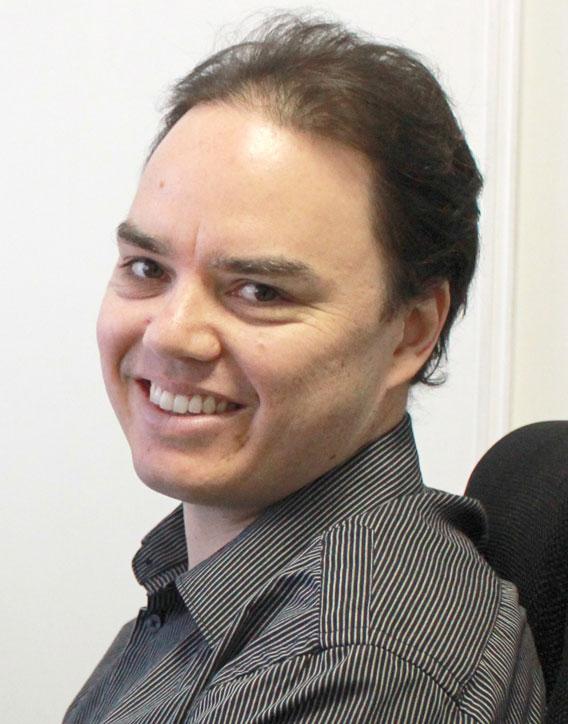
The International Assocation for Media and Communication Research (IAMCR) and the International Environmental Communication Association (IECA) are pleased to announce that the 2019 New Directions for Climate Communication Research Fellowship has been awarded to John Cook, Emily Vraga, and Sojung Kim for their proposal Countering Climate Misinformation with Humor and Active Inoculation.
Announcing its decision, the Climate Change Communication Award Judging Panel said:
"John Cook, Emily Vraga, and Sojung Kim’s research proposal titled Countering Climate Misinformation with Humor and Active Inoculation is a very well designed and organized study with clear justification. It contains an original approach in a much needed area of inquiry—there are not many studies looking into humor and climate communication. Their "self-contained" proposal really fit the award and met all the requirements. It is interesting, important, and focused and the award goes directly to making the research happen."
John Cook is a research assistant professor at the Center for Climate Change Communication at George Mason University. He obtained his PhD at the University of Western Australia, studying the cognitive psychology of climate science denial. His research focus is understanding and countering misinformation about climate change. In 2007, he founded Skeptical Science, a website which won the 2011 Australian Museum Eureka Prize for the Advancement of Climate Change Knowledge and 2016 Friend of the Planet Award from the National Center for Science Education. John co-authored the college textbooks Climate Change: Examining the Facts and Climate Change Science: A Modern Synthesis, and the book Climate Change Denial: Heads in the Sand.
Emily K. Vraga is an associate professor and holds the Don R. and Carole J. Larson Endowed Professorship in the Hubbard School of Journalism and Mass Communication at the University of Minnesota. Her research focuses on how individuals process news and information about contentious health, scientific, and political issues, particularly in response to disagreeable messages they encounter in digital media environments. She is especially interested in testing methods to correct misinformation, to limit biased processing, and to encourage attention to more diverse content online.
Sojung Claire Kim is an Assistant Professor in the Department of Communication at George Mason University. At Mason, she directs the Communication, Health, and Relational Media (CHARM) Lab, where she conducts research on effective message design and evaluation with eye tracking technology. Her research interests broadly lie on intersections of interactive media, health communication, and strategic messaging. Research contexts primarily concern challenging health and environmental issues such as cancer, addiction, vaccination, and climate change. Her interdisciplinary work allows her to employ both quantitative and qualitative methodologies. She received her doctorate in Mass Communications from the University of Wisconsin-Madison and completed her post-doctoral fellowship in the Annenberg School for Communication at the University of Pennsylvania.
Project Description
Title: Countering Climate Misinformation with Humor and Active Inoculation
Two understudied approaches to countering misinformation are humor and “active inoculation”. In active inoculation, recipients participate in interactive exercises that explain misleading fallacies in misinformation. Our research will explore these two understudied areas, experimentally testing both humorous and active inoculating approaches to counter misinformation about climate change. Further, we will combine the two approaches in a new approach that combines humor and active inoculation. We expect to gain insights into the relative efficacy of passive vs. active inoculation, and humorous vs. non-humorous approaches to countering misinformation. Further, the research findings will inform the design of an innovative mobile game that uses humor and gamification to raise critical thinking about climate change.

Abstract
While there is much extant research into different interventions to counter misinformation, two understudied approaches are humor and “active inoculation”. The vast majority of inoculation research has explored “passive” inoculation, where recipients passively receive inoculating messages. A novel form of inoculation is active inoculation, where recipients participate in interactive exercises that explain misleading fallacies in misinformation. Our research will explore these two understudied areas, experimentally testing both humorous and active inoculating approaches to counter misinformation about climate change. Further, we will combine the two approaches in a new approach that combines humor and active inoculation in a 2 x 2 crossed design. This research is expected to yield theoretical insights into the relative efficacy of passive vs. active inoculation, and humorous vs. non-humorous approaches to countering misinformation. Further, the research findings will inform the design of an innovative mobile game that uses humor and gamification to raise critical thinking about climate change.
About the Award
IAMCR launched its Climate Communication Research Awards in 2014. The New Directions for Climate Communication Research Fellowship is awarded annually as part of IAMCR's policy to green its activities. It received seed funding from a 2014 IAMCR Project Grant. IECA joined the project in 2015. Since 2017 the award has been financed by the Griffith Centre for Social and Cultural Research, Griffith University, Australia.
Climate Change Communication Award Judging Panel
- Richard Doherty (Chair, International Environmental Communication Association)
- Xinghua Li (Associate Professor, Babson College, History and Society Division)
- Carrie P. Freeman (Associate Professor of Communication, Georgia State University)
- Hanna E. Morris (Annenberg School for Communication, University of Pennsylvania)
- Emma Frances Bloomfield (Assistant Professor, Communication Studies, University of Nevada, Las Vegas)